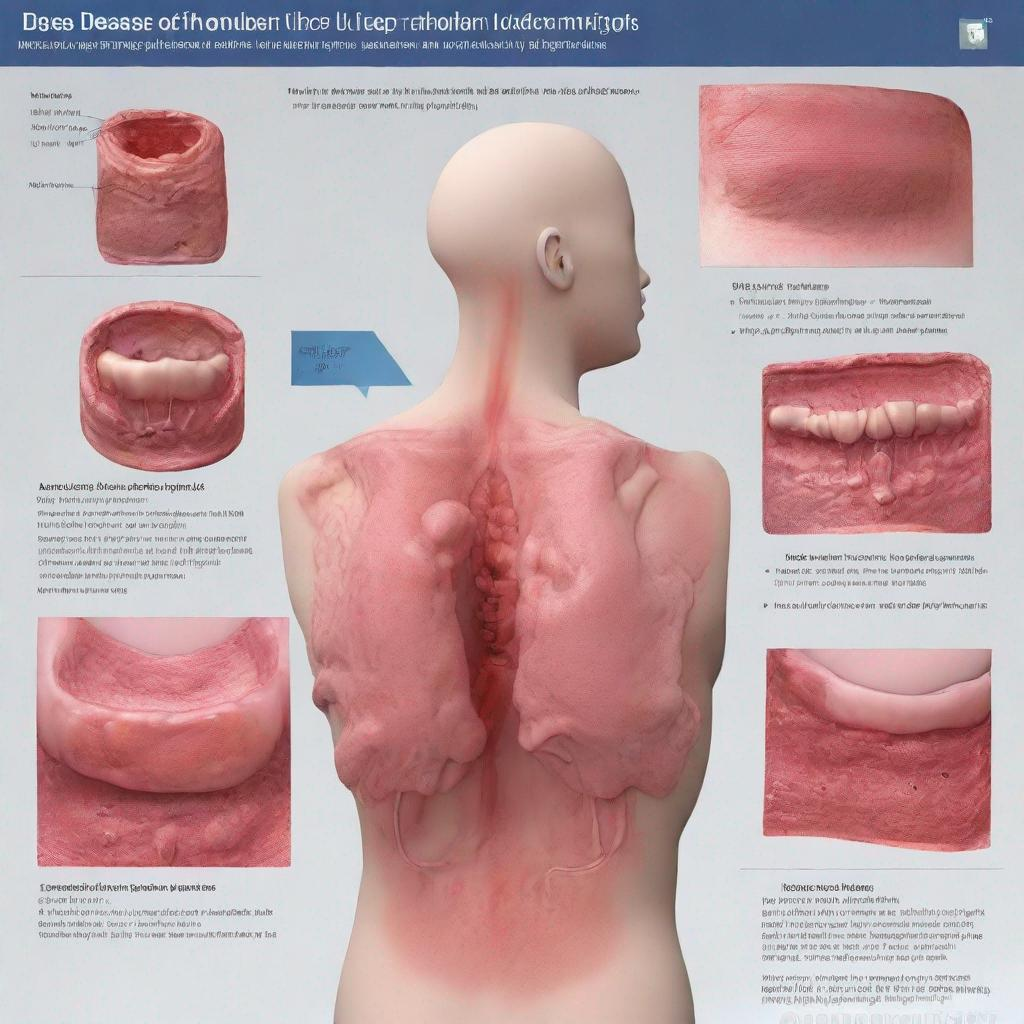## Peptic Ulcer Disease: A Comprehensive Guide
**Introduction**
Peptic ulcer disease (PUD) is a condition characterized by the development of open sores (ulcers) in the lining of the stomach or duodenum, the first part of the small intestine. These ulcers can cause significant pain and discomfort, and if left untreated, can lead to serious complications.
**Symptoms**
The most common symptom of PUD is epigastric pain, which is a burning or gnawing sensation in the upper abdomen. Other symptoms may include:
– Heartburn
– Indigestion
– Bloating
– Flatulence
– Nausea
– Vomiting
– Hematemesis (vomiting blood)
– Melena (black stools)
**Diagnosis**
PUD is typically diagnosed through an upper gastrointestinal (GI) series, which involves swallowing a liquid containing barium that coats the lining of the stomach and duodenum, making it visible on X-rays. An endoscopy, a procedure where a thin, flexible tube with a camera on the end is inserted into the stomach and duodenum, can also be used to diagnose PUD and collect biopsies for further analysis.
**Types**
There are two main types of PUD: gastric ulcers and duodenal ulcers. Gastric ulcers occur in the stomach, while duodenal ulcers occur in the duodenum.
**Causes**
PUD is most commonly caused by the bacterium Helicobacter pylori (H. pylori), which infects the lining of the stomach and produces substances that damage the protective mucus layer. Other risk factors for PUD include:
– Use of nonsteroidal anti-inflammatory drugs (NSAIDs)
– Smoking
– Alcohol consumption
– Stress
– Certain medical conditions, such as Zollinger-Ellison syndrome
**Prevention**
To prevent PUD, it is important to:
– Limit or avoid NSAID use
– Quit smoking
– Reduce alcohol intake
– Manage stress
– Treat H. pylori infection
**Treatment**
Treatment for PUD typically involves medications to reduce stomach acid production and promote ulcer healing. These medications include:
– Proton pump inhibitors (PPIs), such as omeprazole and esomeprazole
– H2 receptor antagonists (H2RAs), such as famotidine and ranitidine
– Antibiotics, such as metronidazole and clarithromycin (to treat H. pylori infection)
In some cases, surgical repair or endoscopic therapy may be necessary to treat severe or recurrent ulcers.
**Complications**
Untreated PUD can lead to serious complications, including:
– Perforated ulcer: A hole in the stomach or duodenum
– Bleeding ulcer: Excessive bleeding from the ulcer
– Obstruction: A blockage in the stomach or duodenum caused by the ulcer
– Gastric cancer: Cancer of the stomach
**Conclusion**
Peptic ulcer disease is a common condition that can cause significant pain and discomfort. Early diagnosis and treatment are essential to prevent serious complications. By following preventive measures and working closely with a healthcare professional, individuals can effectively manage PUD and improve their overall health.



